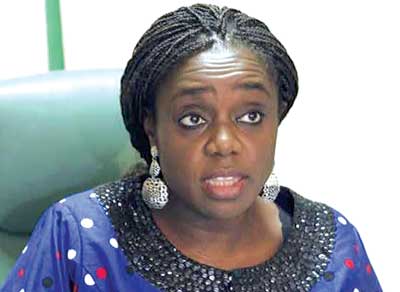
Leadership / Nigeria: The federal government yesterday explained why it is yet to revive the economy with an injection of N350 billion four months after making the promise.
According to the government, the money is available but it has been hindered by procedural lapses. It, however, gave the assurance that the money will be available in the next week or two.
LEADERSHIP recalls that on March 22 this year, the government had said it intended to inject N350 billion into the country to revive economic activities.
Minister of finance, Kemi Adeosun, had said, at the end of the two-day National Economic Council (NEC) Retreat at the Presidential Villa, Abuja, that the money would partly be used to offset contractual debts in the country.
Speaking to State House correspondents yesterday after a federal executive council meeting (FEC) presided over by acting president, Yemi Osinbajo, the minister of budget and national planning , Udo Udoma, said the focus of the meeting was to review the economy.
Udoma said his ministry briefed FEC members about the economy and the steps that they need to take and that the Council approved that the various Ministries, Departments and Agencies (MDAs) should fast-track the processes for the capital budgets so that the economy could be quickly reflated.
He said, “As for the N350billion which was indicated, the money is available but there is a process and this is part of the reasons we briefed Council; there is the need to fast-track those processes so that, very soon, most of those monies would be released. We expect, in the Ministry of Works, they should have quite a substantial release in the next week or so.
“It’s easier for us for existing projects but new projects are a bit more difficult because of the public procurement (requirements). You have to advertise and you have to wait for six weeks and so on. So new projects will take a bit longer.
“But existing projects that had already gone through the public procurement process will be faster and I believe that you will soon start seeing the impact of those releases.
On recession as hinted by Central Bank and the retrenchments in the banking sector, the minister recalled that the government had launched a strategic document, and set out 34 core objectives it intends to achieve this year.
“We set out all our objectives. We have a plan and the plan is to reflate the economy. What has happened to Nigeria is not a surprise to the government; it is something that we came in to meet; it has been caused by the fall of crude oil prices from over $100 to less than $30 and so we came in to meet that problem.
“The decision that we took to address that problem is to reflate the economy and the budget was aimed at achieving that and that is why you have in the budget a plan to spend a large amount of money on infrastructure, but as you know, the budget was only recently passed.
“It is just that, at this particular point in time, we expected this trajectory because the releases will only start kicking in so that, by the third quarter, we will start seeing the impact of what we are doing to reflate the economy.”
On speculated impending sack of workers in para-military organisations, he said the government had no such policy to retrench workers, and pleaded with the private sector to reconsider their stance.
He said, “That is news to me. I am not aware of any instruction to anybody to sack anybody. In fact, the policy of this government, we said so at the beginning that we are not going to retrench. There are people who retire, people who may be disciplined but there is no policy in this government to retrench.
“With regards to the plea to the private sector, it is because we know that by the time the economy picks up, they will need those people again. We know the economy is going to pick up – we are confident about that; that is because of our plan – the plan was conceived because we knew that this was the trajectory we will move into.”
He also disclosed that the government had a plan to move the country up 20 places in the ease of doing business index.
“We want to stimulate the private sector because we know that even the spending by government alone will not be sufficient. We also need to have policies that will encourage the private sector. We do have a plan. It was launched; it was taken to cabinet and approved by cabinet,” he concluded.




